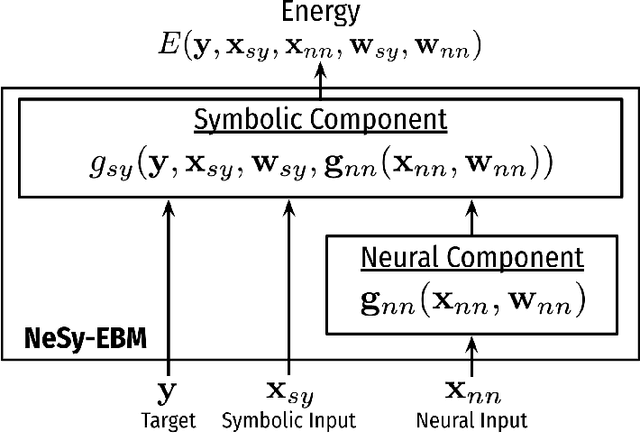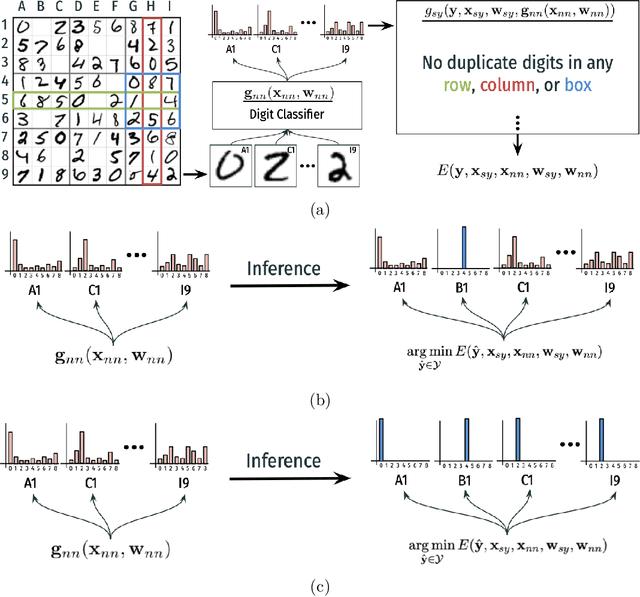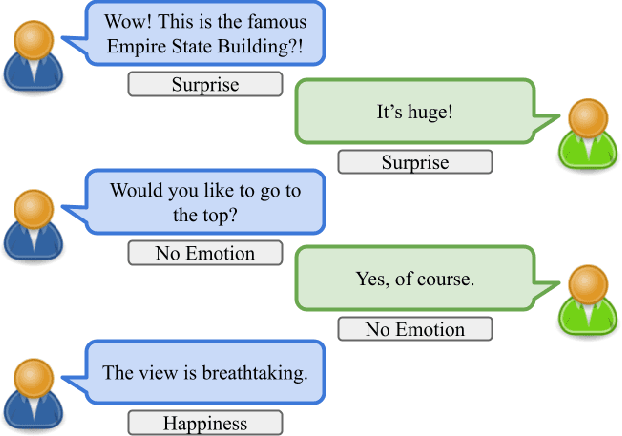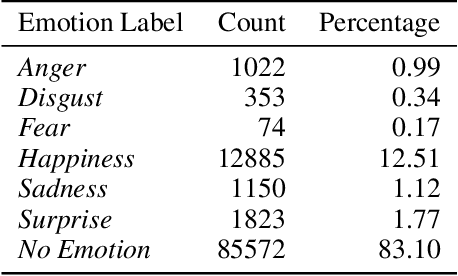Eriq Augustine
A Mathematical Framework, a Taxonomy of Modeling Paradigms, and a Suite of Learning Techniques for Neural-Symbolic Systems
Jul 12, 2024



Abstract:The field of Neural-Symbolic (NeSy) systems is growing rapidly. Proposed approaches show great promise in achieving symbiotic unions of neural and symbolic methods. However, each NeSy system differs in fundamental ways. There is a pressing need for a unifying theory to illuminate the commonalities and differences in approaches and enable further progress. In this paper, we introduce Neural-Symbolic Energy-Based Models (NeSy-EBMs), a unifying mathematical framework for discriminative and generative modeling with probabilistic and non-probabilistic NeSy approaches. We utilize NeSy-EBMs to develop a taxonomy of modeling paradigms focusing on a system's neural-symbolic interface and reasoning capabilities. Additionally, we introduce a suite of learning techniques for NeSy-EBMs. Importantly, NeSy-EBMs allow the derivation of general expressions for gradients of prominent learning losses, and we provide four learning approaches that leverage methods from multiple domains, including bilevel and stochastic policy optimization. Finally, we present Neural Probabilistic Soft Logic (NeuPSL), an open-source NeSy-EBM library designed for scalability and expressivity, facilitating real-world application of NeSy systems. Through extensive empirical analysis across multiple datasets, we demonstrate the practical advantages of NeSy-EBMs in various tasks, including image classification, graph node labeling, autonomous vehicle situation awareness, and question answering.
Emotion Recognition in Conversation using Probabilistic Soft Logic
Jul 14, 2022



Abstract:Creating agents that can both appropriately respond to conversations and understand complex human linguistic tendencies and social cues has been a long standing challenge in the NLP community. A recent pillar of research revolves around emotion recognition in conversation (ERC); a sub-field of emotion recognition that focuses on conversations or dialogues that contain two or more utterances. In this work, we explore an approach to ERC that exploits the use of neural embeddings along with complex structures in dialogues. We implement our approach in a framework called Probabilistic Soft Logic (PSL), a declarative templating language that uses first-order like logical rules, that when combined with data, define a particular class of graphical model. Additionally, PSL provides functionality for the incorporation of results from neural models into PSL models. This allows our model to take advantage of advanced neural methods, such as sentence embeddings, and logical reasoning over the structure of a dialogue. We compare our method with state-of-the-art purely neural ERC systems, and see almost a 20% improvement. With these results, we provide an extensive qualitative and quantitative analysis over the DailyDialog conversation dataset.
NeuPSL: Neural Probabilistic Soft Logic
May 27, 2022



Abstract:We present Neural Probabilistic Soft Logic (NeuPSL), a novel neuro-symbolic (NeSy) framework that unites state-of-the-art symbolic reasoning with the low-level perception of deep neural networks. To explicitly model the boundary between neural and symbolic representations, we introduce NeSy Energy-Based Models, a general family of energy-based models that combine neural and symbolic reasoning. Using this framework, we show how to seamlessly integrate neural and symbolic parameter learning and inference. We perform an extensive empirical evaluation and show that NeuPSL outperforms existing methods on joint inference and has significantly lower variance in almost all settings.
 Add to Chrome
Add to Chrome Add to Firefox
Add to Firefox Add to Edge
Add to Edge